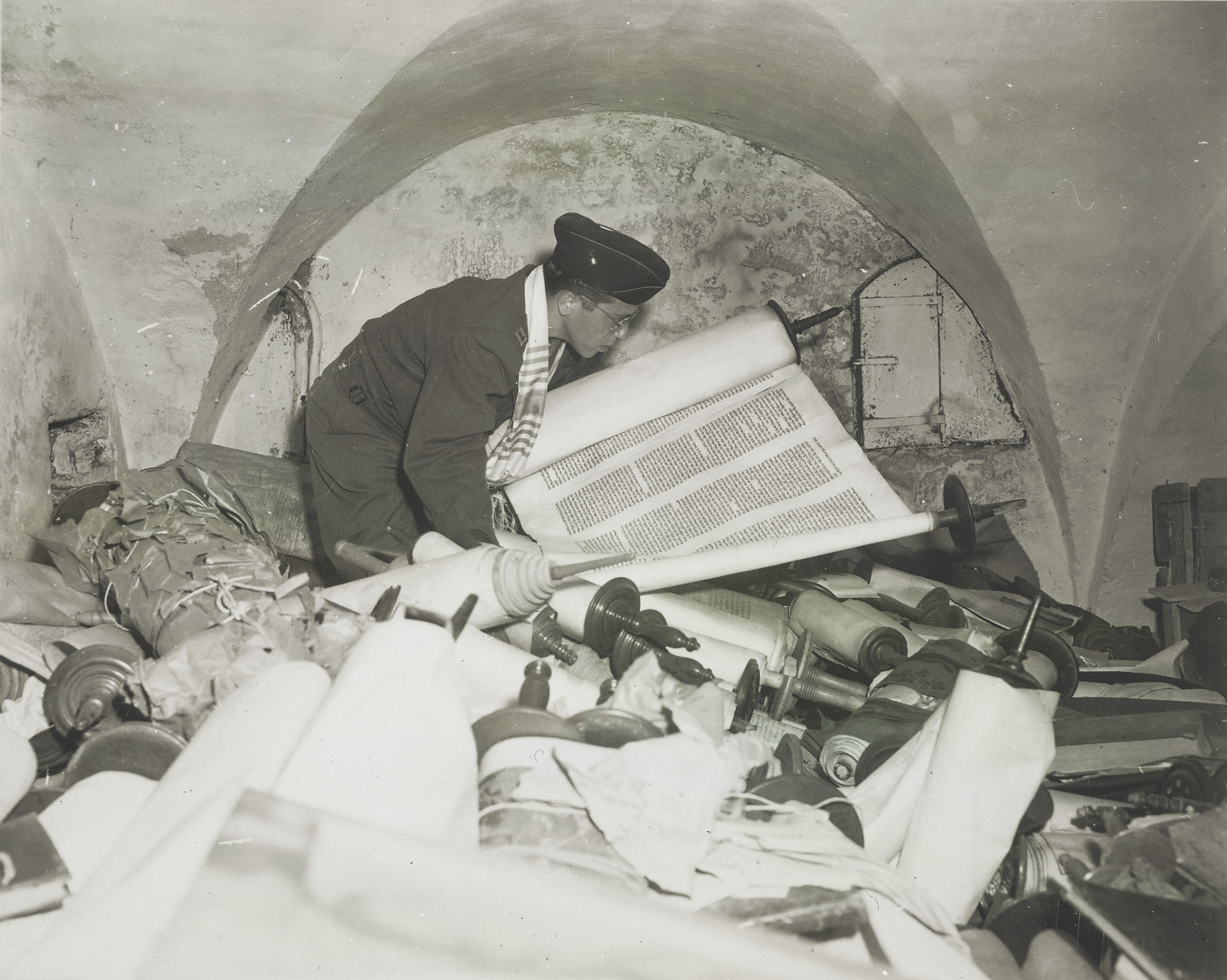A Mortuary of Books: The Rescue of Jewish Culture after the Holocaust
Elisabeth Gallas. 416 pp.
NYU Press, 2019. $35.
Europe lay in ruins and 6 million Jews had been murdered when, in late winter 1946, the American military designated an old I. G. Farben complex on the River Main, outside Frankfort, the Offenbach Archival Depot. The sterile name belied its function: a repository for some 3.5 million books and manuscripts, several thousand Torah scrolls, and other Jewish ritual objects the Nazis had confiscated during World War II.
Determined to destroy the Jewish “race,” Adolf Hitler’s henchmen had looted libraries, synagogues, yeshivas, and homes, often burning the books and sacred objects they took but storing some in Reich repositories. Those remnants of European Judaism made their way to Offenbach and a few other sanctuaries after the war, and as Gallas explains, they became the seeds for a new, vigorous Jewish identity and culture.
Gallas, a research associate at the Leibniz Institute in Berlin, offers a comprehensive and scholarly examination of the many people and institutions involved with these objects during and after the war. While the level of detail in the histories can be overwhelming at times, Gallas tempers the recitations of fact by exploring the profound human—and often political—import of the surviving books, manuscripts, and Torah scrolls. She quotes Lion Feuchtwanger, the German-Jewish novelist and playwright, who wrote in 1925 that the Jews had “no country, no soil, no king….It was the Book that sweated them into unity.”
World War II also sweated the surviving Jewish peoples into unity, and Gallas covers in later chapters the growing zeal for Zionism and the major players that entwined with both that growth and the dispensation of the surviving objects. In Jerusalem the German expatriate Gershom Scholem worked tirelessly to secure a significant portion of them to ensure that Israel acquire, as Gallas puts it, “the cultural and spiritual legacy of the European Jews.” In the United States, which became a strong postwar center of Jewish culture and identity, Gallas recounts in detail the activities of the New York–based JCR—Jewish Cultural Reconstruction Inc.—and the critical roles that Hannah Arendt and Salo Baron played in it.
The fourth significant character in Gallas’s saga of the dispossessed objects is New York–born Lucy Dawidowicz, the scholar who gave the Offenbach “mortuary of books” its haunting sobriquet. One visitor to Offenbach, Isaac Bencowitz, described how moving he found the books: “They were whispering a tale of yearning and hope long since obliterated. I would pick up a badly worn Talmud with hundreds of names of many generations of students and scholars. Where were they now? Or rather, where were their ashes?”
In some ways Gallas’s book is not so much the account of a mortuary as of a phoenix—a culture brought to the brink of extinction that rose again from the ashes through the sheer power of its books and beliefs.
—K. M. Kostyal is the author of Founding Fathers: The Fight for Freedom and the Birth of American Liberty (National Geographic Books, 2014).
[hr]
This article appears in the Autumn 2019 issue (Vol. 32, No. 1) of MHQ—The Quarterly Journal of Military History with the headline: Review: A Mortuary of Books: The Rescue of Jewish Culture after the Holocaust

Want to have the lavishly illustrated, premium-quality print edition of MHQ delivered directly to you four times a year? Subscribe now at special savings!

